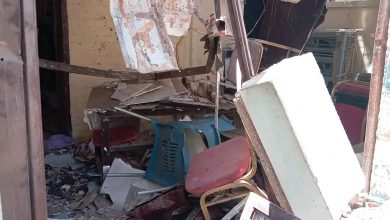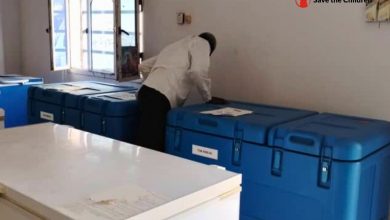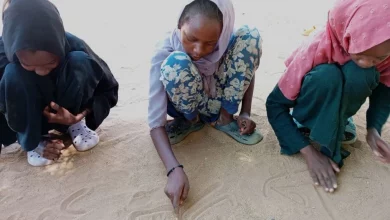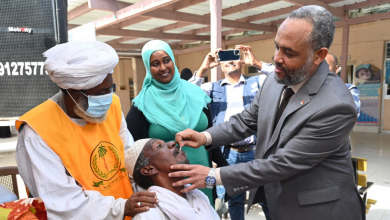Everything Spreads Cholera – Sudan’s Displaced Fight It with Water and Lemon
Mashawir – Agencies
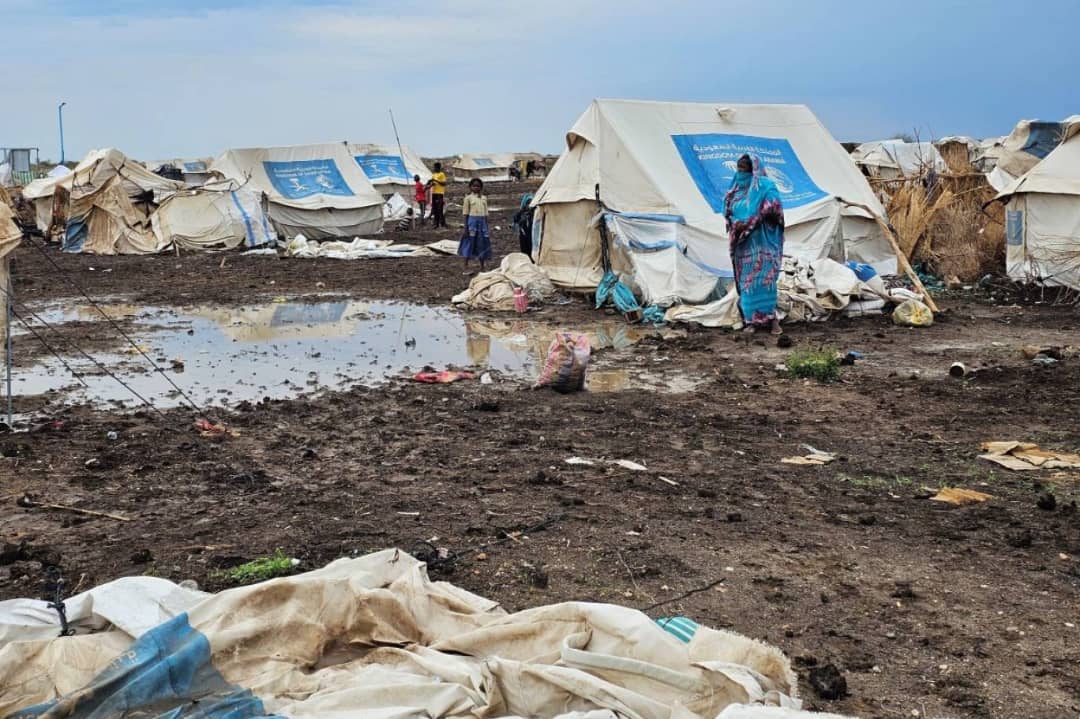
In hastily erected tents for displaced people in the city of Tawila, far west Sudan, Sudanese residents spread their clothes and utensils under the blazing sun on sandy ground. With insufficient water to wash them, they are trying to disinfect them for fear of cholera.
“We have no water, no services, not even toilets, and the children relieve themselves in the open,” says Mona Ibrahim, who fled from El-Fasher to Tawila in the Darfur region of western Sudan, speaking to Agence France-Presse.
A Deadly Bacterium
Here, everything seems capable of transmitting cholera. In the absence of clean water, sanitation facilities, and medicine, hundreds of thousands of Sudanese have resorted to mixing water with lemon to combat the deadly bacteria.
Fleeing deadly fighting and attacks on their camps in El-Fasher, North Darfur, in recent months, about half a million people have been displaced, according to the United Nations, to Tawila, 40 kilometers to the west. Its streets are now filled with refugees living under makeshift, roofless huts made of straw, surrounded by stagnant water pools attracting swarms of flies.
“There is no treatment in Tawila, and we put lemon in water because we have no other way to protect ourselves. Even the water itself is far from us,” Ibrahim adds.
Last month, Médecins Sans Frontières (MSF) treated 1,500 cholera patients. UNICEF has warned that 640,000 children under the age of five are at risk of contracting the disease in North Darfur alone. Since April, the UN has recorded over 300 cholera cases among children in Tawila.
A Growing Crisis
Sudan, which has been ravaged by a devastating war for over two years, is suffering a severe collapse of its medical infrastructure and communications, making it difficult to access hospitals and record accurate numbers of cases and deaths.
The war, which erupted in April 2023 between the army led by Abdel Fattah al-Burhan and the Rapid Support Forces led by his former deputy Mohamed Hamdan Dagalo, has killed tens of thousands and displaced more than 13 million people inside and outside the country.
MSF coordinator Sylvain Benico told AFP that the first cholera cases were detected in early June in the village of Tabit, south of Tawila. “The situation is developing rapidly,” he said, adding, “Just two weeks later, we began recording cases inside Tawila city, especially in the displacement camps.” By the end of July, 2,140 cases and 80 deaths had been reported in Darfur, according to the UN.
No Soap Here
Cholera is an acute diarrheal infection caused by consuming contaminated food or water. The World Health Organization (WHO) describes it as “an indicator of inequity and lack of social and economic development.”
WHO warns that cholera can be fatal within hours if left untreated, but it can be treated with intravenous fluids, oral rehydration salts, and antibiotics. UNICEF has set up a tent in the city center to treat cholera patients.
Ibrahim Abdullah, UNICEF’s director in Tawila, advises community members to maintain hygiene, wash their hands with soap, and clean the blankets and tarps distributed to them. However, blankets, soap, and clean water remain luxuries many cannot afford in the displacement camps.
According to Benico, there is “nothing” in Tawila’s displacement camps — “no water, no sanitation, no medical care.” Most cholera infections are occurring inside these camps. Another displaced woman from El-Fasher says, “I have no food, no tent, no pot, no blanket — nothing.”
Sitting beside a pile of dirty clothes, Mona Ibrahim confirms, “No one here has soap.” Tawila residents rely on water from nearby natural ponds, most of which are contaminated, or from the few remaining wells, or after standing in long queues at the public tap.
The UN has repeatedly warned of food insecurity in Tawila, with a severe shortage of humanitarian aid that is difficult to deliver due to multiple challenges. “The situation is very worrying — these people have no options left,” Benico says.
Other Diseases
On beds lined along the sides, emaciated patients lie connected to intravenous drips as swarms of flies fill the treatment tent. At the entrance of a makeshift hospital, a UNICEF worker sprays disinfectant on everyone entering. MSF has also set up a cholera treatment center in Tawila with 160 beds, and another in the Daba Nabura camp — one of the highest-recorded cholera infection sites — both of which are “completely full,” according to Benico.
Delivering food and medical aid inside Sudan faces major challenges due to lack of funding, violence, targeting of aid workers, and the rainy season, which peaks in August and often closes roads.
Last week, the WHO warned of worsening malnutrition, displacement, and disease outbreaks in Sudan. WHO Director-General Tedros Adhanom Ghebreyesus told a press conference in Geneva that “cholera has spread across Sudan, with all states reporting outbreaks and 100,000 cases reported since July 2024.”
He cautioned that “recent floods in large parts of the country could worsen malnutrition and fuel new outbreaks of cholera, malaria, dengue fever, and other diseases.”

